What Do We Make of SOGI Conversion Practices?
Several jurisdictions around the world have introduced SOGI (Sexual Orientation Gender Identity) Conversion laws to restrict promotion of attempts made by groups or individuals to convert non-heterosexuals to heterosexuality. In December 2020, the Tasmanian Law Reform Institute (TLRI) had several groups from among the LGBTQA+ communities approach them and refer them to the possible need to reform the law in response to SOGI Conversion practices. The TLRI accepted their reference and issued an Issues Paper (#31) and has invited public consultation on their paper which calls for the outlawing of ‘conversion practices’. There are several underlying premises in the TLRI Issues Paper, many of which I have addressed in my submission to the Institute which you can view here.
Or do you not know that your body is a temple of the Holy Spirit within you, whom you have from God? You are not your own, for you were bought with a price. So glorify God in your body.
First Corinthians 6:19-20
Why Christians Might Be Concerned About Proposed SOGI Laws
Christianity is grounded in the belief that miracles do occur. The Bible describes becoming a Christian as a miraculous activity. Miracles are not a violation of the laws of nature they are an intervention into the normal laws of nature. For example, the law gravity has been described as what goes up must come down. (It’s the downward part that describes the force of gravity.) Thus, if we were to throw an apple into the air, it will experience the force of gravity and begin to come down when its upward velocity dissipates; and, all things being equal, it will land on the ground. This is the natural law of gravity at work. But instead of letting the apple hit the ground we reach out our hand and catch the apple, we have not violated the law of gravity, we have in one sense intervened within its natural consequences. Miracles are similar. Miracles are acts of divine intervention. They are therefore not inexplicable. The belief that God can intervene into the natural course of a human being, a person (excuse the tautology since all human beings are persons), is fundamental to understanding how a person becomes a Christian. God takes lost and broken people and transforms them into “new creations”.
¶ Or do you not know that the unrighteous will not inherit the kingdom of God? Do not be deceived: neither the sexually immoral, nor idolaters, nor adulterers, nor men who practice homosexuality, nor thieves, nor the greedy, nor drunkards, nor revilers, nor swindlers will inherit the kingdom of God. And such were some of you. But you were washed, you were sanctified, you were justified in the name of the Lord Jesus Christ and by the Spirit of our God.
First Corinthians 6:9-11
Therefore, if anyone is in Christ, he is a new creation. The old has passed away; behold, the new has come.
Second Corinthians 5:17
Most SOGI conversion laws essentially deny this foundational truth of the Christian faith. This is one reason why Christians might, and perhaps should, have a problem with SOGI conversion laws. Secondly, not only do such laws deny that people can change their core identity (as characterised by the letters LGBTQA), it asserts that science confirms that they can’t. The reason Christians might, and perhaps should, have a disagreement with this assertion is that there is no incontrovertible scientific support for this assertion. ‘Hard’ science operates on the basis of testable, repeatable, and verifiable data. ‘Soft’ science does too, but starts with a different methodology referred to as sampling. If the soft-science (or social science) sample is too small, too narrow, or too corrupted, the result will be skewed. This is why peer-reviewed examination of the data and its conclusions is so critical. But in recent times, even the process of peer-reviewing of hard — and especially soft — scientific claims has been shown to be subject to the frailties of soft-science conclusions. The former editor of the prestigious British Journal of Medicine, Dr. Richard Smith explains the problem this way-
Peer review is at the heart of the processes of not just medical journals but of all of science. It is the method by which grants are allocated, papers published, academics promoted, and Nobel prizes won. Yet it is hard to define. It has until recently been unstudied. And its defects are easier to identify than its attributes. Yet it shows no sign of going away. Famously, it is compared with democracy: a system full of problems but the least worst we have. When something is peer reviewed it is in some sense blessed…When I was editor of the BMJ (British Medical Journal) I was challenged by two of the cleverest researchers in Britain to publish an issue of the journal comprised only of papers that had failed peer review and see if anybody noticed. I wrote back ‘How do you know I haven’t already done it?’
Dr. Richard A. Smith, Journal of the Royal Society of Medicine, “Peer review: a flawed process at the heart of science and journals”, J R Soc Med. 2006 Apr; 99(4): 178–182. doi: 10.1258/jrsm.99.4.178
Therefore, the second reason that Christians might and indeed should be concerned with SOGI laws is that they are often grounded in unverifiable and even false claims that amount to assertions not reasoned arguments. This is often bamboozling for the non-scholar to detect. Those who study philosophy are trained in the discipline of logic and argumentation. One of the principles that students of philosophy learn is that the strength of an argument is based on its logical reasoning, not on the credentials of its proponent. That is, just because Professor Know-it-all says something is so, does not mean that we should accept that it is so. Rather, we need to evaluate the reasons that Professor Whats-his-name gives in support of his claim. If his reasons are sound, which usually requires verifying, then we can accept that the claim is true.
The one who states his case first seems right,
until the other comes and examines him.
Proverbs 18:17
This principle given an ancient Hebrew proverb helps us to be gracious toward those who support a claim with what they genuinely believe is ‘settled science’. The depth of any society’s civility is not just in what they agree on, but, and perhaps more importantly so, on how they disagree. It is important for the intellectual rigour of a society to have robust debate about ideas that matter and an honest pursuit of truth in a civilised manner. It is in this light that I prepared and submitted my response to the Tasmanian Law Reform Institute’s Issues Paper #31, in which they set out their claims and asked respondents to answer nine key questions –
A Public Submission in Response to the Tasmanian Law Reform Institute’s
Sexual Orientation and Gender Identity Conversion Practices
Issues Paper No. 31, November 2020
Dr. Andrew Corbett, Legana Tasmania, January 18th 2021
Preamble
Thank you for the opportunity to respond to this Issues Paper (IP). I appreciate that this proposal to seek the community’s feedback for potential legislative or regulatory reform was referred to the TLRI by several LGBTQA+ activist groups and an individual activist. It is appreciated that members of these various communities often feel socially marginalised and the victims of bigotry. Because of the emotional, mental and psychological factors affecting the Reference Group (pg. xi) identified in this IP, there may understandably be an unintended bias in the presumptions of this IP in support of the premise views of the Reference Group. Several possible examples of these will be identified in this submission.
There were some difficulties in responding to many of the points raised in the IP. The intentional vagueness in defining conversion practices has contributed to this difficulty for this submission. The IP’s anticipates that the definition will be formed later in response to public consultation. This only complicates the attempt to respond to this IP. Since the IP has offered no instances of conversion practices having happened in Tasmania, historical instances can not be used either as the framework for defining it. While the IP cites partial definitions given by other jurisdictions, it was not clear whether the TLRI was suggesting that these should be the basis for its understanding of what constitutes SOGI conversion practices. All of this is odd since defining conversion practices is the first article in its Terms of Reference. Without this definition it is then odd that the TLRI seems to assume that it is mainly (Christian) religious groups who are guilty of conducting conversion practices and should justifiably have their “freedom of expression and freedom of religion” dramatically restricted (1.3.22).
The IP is to be commended for its attempts to buttress its claims with peer-reviewed scholarship. There are though several instances where absolute claims have been asserted that there are no contrary peer-reviewed scholarly articles which disagree with the IP’s assertions. Several of these instances will be highlighted.
Dr. Andrew Corbett, Senior Pastor of Legana Christian Church
Responses and Reasons
Q. 1 After considering the background and working definition (see [1.3.23] on page 13), in your opinion, what are and are not ‘sexual orientation and gender identity conversion practices’?
Achieving a Definition of Conversion Practices
1.3.1 At this stage the Institute intends to settle on a meaning only for the purposes of framing the remaining discussion in this Issues Paper and for this public consultation. There are differing views on the meaning of the term. Further, there is incomplete evidence on the range of practices that may be occurring in Australia. As such, the Institute intends the question of legal meaning to be one put to the community. That consultative process may mean the Institute recommends a narrower or broader meaning than is set out in this Issues Paper.
The Institute’s reluctance to define conversion practices makes it difficult to comment on what is being argued for. While it refers to statutes from other jurisdictions which range from outlawing physically and psychologically abusive practices, which in some instances have been described as torture (Ecuador, 3.4.7), to the notion that a possible statute might also encompass simply praying for someone (1.2.6.2), it is difficult to accept that physical torture and prayer should be considered equally abhorrent.
While the IP acknowledges that there is a spectrum of beliefs among religious organisations (1.2.15) and how those beliefs are practiced, it seems to suggest that all of these organisations may each have to forego certain of their freedoms in the exercise of their religious convictions. Yet, the only clear example of any ‘religion’ promoting and performing a form of conversion practice given in the IP (located in a footnote) was the ‘Church of Scientology’ as described in its manual, Dianetics (IP page 8 fn. 23). It is important to realise that this organisation is not recognised as a religious organisation by the Christian community—and specifically in Tasmania and in particular by the Heads of Churches in Tasmania (representing Catholics, Anglicans, Presbyterians, Baptists and Pentecostals). Therefore it is somewhat unfair to extrapolate that Christian groups should be assumed to hold similar beliefs and practices that Scientology promotes and conducts.
The IP describes conversion practices as including “non-consensual physically abusive acts” resulting in “inducing nausea, vomiting or paralysis” (1.3.7) in an effort to ‘convert’ a person to heterosexuality. This is not the ministry praxis of Christian churches. It is significant to note that the IP has found no examples of Christian churches or ministries ever conducting conversion practices in Tasmania. We, as part of the Christian community of Tasmania, utterly condemn the use of physical or psychological torture under any guise, let alone conversion practices—but so does the existing Tasmanian legislation in the Criminal Code of 1924.
The inclusion of the reference to part of the Australian Capital Territory’s Sexuality and Gender Identity Conversion Practices Act 2020, s 7(2) is appreciated and shows an attempt to acknowledge that most religious communities have ethical concerns about this issue which are not bigotry. The IP cites the ACT legislation where it states, “It is not intended that a mere expression of a religious tenet or belief would constitute a sexuality or gender identity conversion practice” (1.2.9).
Presumptions About Orientation
The IP asserts that sexual orientation cannot be altered. Several peer-reviewed papers where this view is repeated are cited in the IP in support of this assertion. There is, however, a growing body of scholarly research into human sexuality which challenges this notion. Professor Sari van Anders of Queen’s University in Canada, Research Chair in Social Neuroendocrinology, Sexuality, & Gender/Sex, is calling for the retiring the concept of [fixed] sexual orientation altogether in favour of her more scientifically and experientially accurate ‘Sexual Configuration Theory’ (1). “Sexual orientation as a term is increasingly seen as regressive,” she states, because it “belongs to the bioessentialist project…Theories of sexual orientation rooted solely in sex are scientifically problematic because they fail to ‘see’ diverse sexualities that empirically exist.” In other words, the term ‘sexual orientation’ is an artificial concept that does not account for the empirically verifiable experiences of people’s “sexual fluidity”. Her peer-reviewed paper has received wide support among other experts in this field.
Professor Roy Baumeister, Professor of Psychology (formerly of Florida State University) now at the University of Queensland, also describes women’s sexuality as “erotic plasticity” and “socially flexible”. He too gives examples of women who lived as lesbians who later settled into a heterosexual relationship (2).
Professor of Developmental Psychology and Health Psychology at the University of Utah, Prof. Lisa Diamond, has also made the case that the notion of fixed sexual orientation is a myth. In her peer-reviewed journal article, “What Does Sexual Orientation Orient? – A Biobehavioral Model Distinguishing Romantic Love and Sexual Desire” she asks and answers, “Does sexual orientation fundamentally circumscribe the class of individuals with whom one can fall in love? I posit that the answer is no.” (3) Professor Diamond denounces conversion practices but makes the case in her TEDx talk that fixed sexual orientation is:
- not scientifically verifiable;
- not legally necessary as a definition; and
- not just (because it can be empirically demonstrated that sexuality is often fluid).
“The plain truth is that gender and sexual development show a lot more variability than most people realize, and that variability often leads to change over time in sexual attraction…Sexual attractions show a fair amount of fluidity.” (4) Her research findings also appear in her book Sexual Fluidity: Understanding Women’s Love and Desire, published by Harvard University Press (5).
Cornell University’s Emeritus Professor of Developmental Psychology, Prof. Ritch Savin-Williams, also describes male sexuality as fluid. He supports his arguments in his latest book, Mostly Straight – sexual fluidity among men, published by Harvard University Press, in which he documents the emerging sexual fluidity among men (6). In anticipating the criticism that what he is describing is actually bisexuality, he has stated that the empirical evidence will “have implications for conceptualization of sexual orientation as a continuum” and that the tri-categories of Gay/Straight/Bi “has outgrown its usefulness and that more groups are necessary.”
These are a sample of the several well respected academics and scholars in this field who challenge the notion of fixed sexual orientation and argue instead for sexual attraction being desires-based, and that over time these desires can be fluid even among those who formerly identified themselves as same-sex attracted.
Prevalence In Tasmania
I have been involved in Tasmanian church leadership within Tasmania for over twenty-five years and I have never been aware of what the TLRI is also presently unaware of-
2.3.1 The TLRI is presently unaware of data about the nature and prevalence of SOGI conversion practices in Tasmania. No scientific study has been published on the prevalence of SOGI conversion practices in Tasmania or Australia.
Which makes the extrapolation of British research in the IP to form the following conclusion even more bewildering –
In place of scientific studies of prevalence, one Australian report offered an estimate of prevalence. The HRLC’s (Human Rights Law Centre) 2018 Report suggested that prevalence studies in the United Kingdom provide a fair comparison for likely prevalence in Australia. That is because of similar demographic conditions with respect to religious observance and LGBTQA+ people. Based on these similarities — and the proportion of Australians identifying themselves as ‘extremely or very active’ in their religion the Centre estimated that up to 10 per cent of Australians may be exposed to some form of SOGI conversion practices.
This is a remarkable and unverified assertion especially considering that it is not even the actual rate of incidents in the U.K. yet it is the unfounded basis for the assumption that it is not only happening, but happening at the rate of 10% of Australians (which would be 2.5 million Australians (7)) who have undergone or have been offered ‘conversion practices’. Yet the Tasmanian Law Reform Institute can not find any instance of it in Australia — let alone Tasmania. Even more remarkably, the IP asserts, “The Institute accepts that SOGI conversion practices are often hidden from the general community” (1.3.22). The Institute then suggests that in order to outlaw a practice that no-one in Tasmania is aware of, yet, it is claimed, has probably intersected the lives of some 50,000 Tasmanians, it will, in the opinion of the TLRI, justifiably mean curtailing the rights of all religious groups who presumably are the ones conducting this practice in a manner hidden to all Tasmanians?
In this case, there is a potential for a legal restriction on SOGI conversion practices to restrict (or be perceived as restricting) freedom of expression and freedom of religion…It further recommends that the [proposed Charter of Rights for Tasmanians, 2007] operates in a manner that allows for the balancing of non-absolute rights and freedoms and the reasonable limits on rights that can be demonstrably justified in a free and democratic society based on human dignity, equality and freedom.
Tasmania Law Reform Institute, A Charter of Rights for Tasmania (Final Report No 10, October 2007) 110–18
As referred to previously, some of the religious practices which the IP implies as needing regulation is the religious activity of “prayer” for those with desires or attractions that are seen by the faith community as “incompatible with the faith and inclusion in the religious community” (1.2.6.2). This implied suggestion fails to distinguish between a religious group’s unfair discrimination of an individual (bigotry) and a view of human sexuality that is grounded in a moral code and is therefore, instead, an ethical concern.
Therefore, in answer to the Institute’s opening question, if by conversion practices the Institute is referring to “torture” (3.5) then the answer is “No!”
There is no need for a law or regulation to be posited because Tasmania already has exisiting laws prohibiting and criminalising the torture of another person in the Criminal Code Act of 1924.
If by conversion practices the Institute means that the religious practice of praying for someone who has requested prayer for an unwanted desire, whether that be sexual or otherwise, then again the answer is “No!” Prayer is a principle practice within the Christian community for one another and is an act of care, sympathy, compassion, love, and empathy. To refuse to pray for a fellow Christian who has sought prayer in such an instance is an act of rejection which carries its own emotional and psychological damage.
Clinical Parallels and Unintended Consequences
While the focus of the IP seems to be directed at Christian churches and their subsidiary organisations, there is scant reference to the role that non-church clinical counsellors in Tasmania, such as psychologists and medical staff, play in responding to those with unwanted perceptions or desires.
Having established that there is at least some credible scholarly debate among experts regarding the claim that sexual orientation is fixed, there is a similar disagreement regarding the claim that gender dysphoria is also fixed. Dr. Thomas Steensma (Department of Medical Psychology and Center of Expertise on Gender Dysphoria, Amsterdam University Medical Center) and his team of researchers have shown that only two to twenty-seven percent of children suffering from gender dysphoria experience it beyond puberty. In their journal article they state, “The results unequivocally showed that gender dysphoria remitted after puberty in the vast majority of children.” (8)
This then raises the important issue of the ethical implications of subjecting a gender dysphoric child to irreversible hormone treatment and surgical removal of perfectly normal body parts, in order to “convert” a person from one biological gender into the artificial resemblance of a different gender. Prof. Paula Johnson (Harvard Medical School), cardiologist and Executive Director of the Connors Center for Woman’s Health, states, “Every cell has a sex—and what that means is that men and women are different down to the cellular and molecular level. It means that we’re different across all of our organs, from our brains to our hearts, our lungs our joints.” (9) Thus, when a clinical counsellor advises the parents of a gender dysphoric child that there may not be a need to subject their pre-pubescent child to chemical and surgical gender conversion treatment, would they too be in breach of any proposed SOGI conversion practice legislation?
In a parallel example of a clinical case where a young person may have a subjective belief about their identity, which does not correspond to their objectively verifiable physical identity, such as the standard diagnosis and treatment for anorexia nervosa (where the patient believes they are ‘fat’ and sometimes even morbidly so) their treatment is not to affirm their biological dysphoria—but to treat their mental illness using the “diagnostic criteria for anorexia in the Diagnostic and Statistical Manual of Mental Disorders (DSM-5)” (10). It is reasonable then to challenge the IP’s assertions regarding gender identity with the parallel comparison between the diagnosis and treatment of anorexia nervosa and gender dysphoria. While the IP claims “Peak medical and psychological bodies consider SOGI conversion unscientific, ineffective and dangerous ([2.2.14]–[2.2.19])” it does not mention that there is no scientific basis for the validity to a biological male’s claim to be a woman because, in the words inspired by Prof. Paula Johnson, every cell, every molecule, every organ—including their brain, heart and lungs, says they are male! (11)
Q. 2 Should people be allowed to consent to SOGI conversion practices? If so, at what age, and under what conditions?
If by conversion practices the Institute is implying emotional, physical abuse or torture, then the answer should be “No!” because consent does not make an immoral act morally acceptable. But if within the scope of conversion practices the Institute is referring to people requesting counsel or prayer for unwanted sexual desires or gender identity confusion, then the answer must be “Yes!” because this is based on reasonable freedoms that every individual in Australia enjoys and in which every religious practitioner also enjoys under Article 116 of the Australian Constitution. If this has been happening, and there are no reports of any conversion practice abuses in Tasmania, then presumably any instance where someone has sought prayer or pastoral counselling has not injurious to the person seeking it.
Q. 3 Have you been involved in or offered, or are you aware of, any forms of SOGI conversion practices in Tasmania? If so, what were the effects on you, or the person exposed to them?
No.
Q. 4. Do you think that Tasmanian law should be changed to address SOGI conversion practices? If so, should this be through comprehensive reform, amendment or both (a hybrid)?
No, I do not think that Tasmanian Law should be changed to address SOGI conversion practices for three reasons. Firstly, the IP has not been able to demonstrate that any such practices have occurred or are occurring in Tasmania; and secondly, the IP has not offered any concrete definition of what should be outlawed, and thirdly, existing Tasmanian laws already address the more egregious practices, such as physical torture and psychological malpractice identified in the IP.
Q. 5. Should some or all forms of SOGI conversion practices be criminalised in Tasmania? If so, which, if any, should be dealt with as serious (indictable) crimes and which, if any, should be dealt with as less serious (summary) offences?
No. The existing Tasmanian criminal code is sufficient to deal with any issues of abuse, torture, stalking, bullying or torment.
Q. 6. Should some or all forms of SOGI conversion practices be made civil wrongs in Tasmania? If so, what sort of practices should people be liable for and how should those subject to such practices be compensated?
No.
Q. 7. Should any existing Tasmanian laws (besides criminal laws or the Civil Liability Act 2002 (Tas)) be amended to cover SOGI conversion practices? If so, which ones and in what way?
No.
Q. 8. Are there any other models or approaches that are preferable to, or should complement, changing the law?
No.
Q. 9. Are there any other matters that you consider relevant to this Inquiry and would like to raise?
Yes, I have alluded to some in the preamble and elaborated them in this submission. In addition to this, while it seems that the Christian Church of Tasmania has been the focus of attention as the primary source for the claim that SOGI conversion practices are being undertaken in Tasmania in a “hidden” manner, the reality is that by far the majority of Christian Churches of Tasmania are warm, welcoming, and inviting of all people no matter what their background, religious views, past experiences or lifestyles. It is equally true that the Christian Churches of Tasmania generally uphold the time-honoured moral guidelines given by Jesus of Nazareth which intrinsically encompasses a view of human sexuality and human flourishing with which most LGBTQA+ activists disagree with. It is worth noting that the Christians of Tasmania want for the members of the various LGBTQA+ communities what the members of the LGBTQA+ communities also want – to experience love, acceptance, affirmation, and a happiness that lasts. And while we might have ethical disagreements with each other about this, disagreement is not hate, it is disagreement. The strength of any society is not merely in what it agrees about, but perhaps more importantly in how it disagrees.
Dr. Andrew Corbett
Pastor of Legana Christian Church
1 Gerrard Close, Legana, Tasmania 7277.
FOOTNOTES:
1. Sari van Anders, ‘Beyond Sexual Orientation: Integrating Gender/Sex and Diverse Sexualities via Sexual Configurations Theory’, National Library of Medicine, July 2015, <https://pubmed.ncbi.nlm.nih.gov/25772652/>
2. Roy Baumeister, ‘Gender differences in erotic plasticity: the female sex drive as socially flexible and responsive’, National Library of Medicine, May 2000. <https://pubmed.ncbi.nlm.nih.gov/10825779/>
3. Lisa M. Diamond, “What does sexual orientation orient? A biobehavioral model distinguishing romantic love and sexual desire”, National Library of Medicine, Jan. 2003. <https://pubmed.ncbi.nlm.nih.gov/12529061/>
4. “Why The ‘Born This Way’ Argument Doesn’t Advance LGBT Equality.” Dr. Lisa Diamond, TEDx Salt Lake City, <https://youtu.be/RjX-KBPmgg4
5. <https://www.hup.harvard.edu/catalog.php?isbn=9780674032262>
6. Prof. Ritch Savin Williams, “Mostly Straight – sexual fluidity among men.” Harvard University Press, 2017. <https://www.hup.harvard.edu/catalog.php?isbn=9780674976382>
7.Information accessed January 2021 <https://www.worldometers.info/world-population/australia-population/>
8. Drs. Thomas Steensma, Roeline Biemond, Fijgje de Boer, Peggy T. Cohen-Kettenis, “Desisting and Persisting Gender Dysphoria After Childhood: A qualitative follow-up study”. 2011. SAGE Life Science Journal. <https://journals.sagepub.com/doi/abs/10.1177/1359104510378303>
9. Prof. Paula Johnson, “His and Hers Healthcare”, December 2013. <https://www.ted.com/talks/paula_johnson_his_and_hers_health_care?language=en> TED Women2013.
10. Mayo Clinic, January 2021. <https://www.mayoclinic.org/diseases-conditions/anorexia-nervosa/diagnosis-treatment/drc-20353597>
11. <https://www.invivomagazine.com/en/mens_sana/interview/article/116/paula-johnson-we-need-a-better-understanding-of-the-differences-between-the-sexes>
4 Comments
Submit a Comment
-
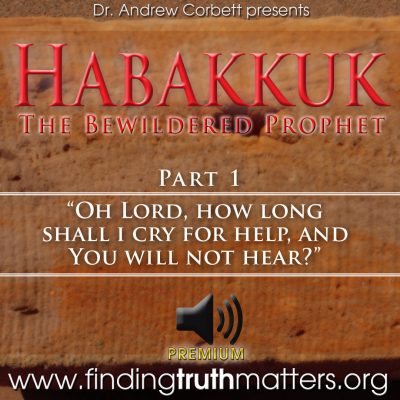
Habakkuk Part 1, Premium Audio
$1.75 -
Sale!
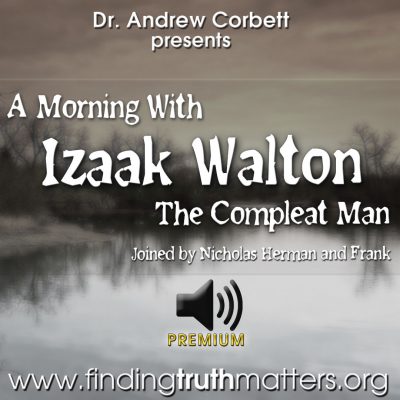
A Morning With Izaak Walton – The Compleat Man, Premium Audio
Original price was: $1.75.$1.25Current price is: $1.25. -
Sale!
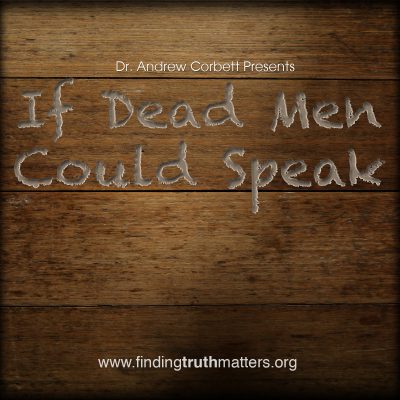
If Dead Men Could Speak – Premium Audio
Original price was: $1.75.$1.25Current price is: $1.25. -
Sale!
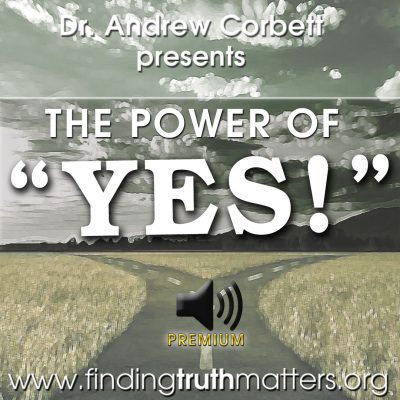
The Power of YES – Premium Audio
Original price was: $1.75.$1.25Current price is: $1.25. -
Sale!
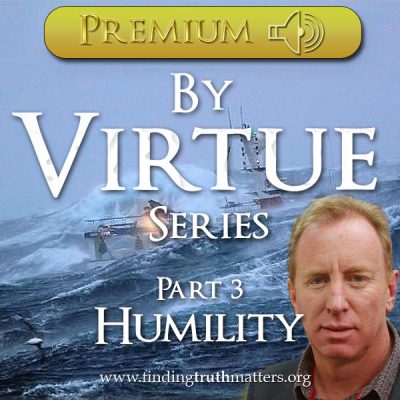
Living By Virtue, Part 3 – By Virtue of Humility
Original price was: $1.75.$1.25Current price is: $1.25.







































Thankyou for your well worded and researched response to the SOGI conversion practices proposed law reforms… I am so glad that we have a pastor that is not afraid to use his voice in the political arena and present his concerns in such a clear way. I too have written a letter voicing my concerns over the discussion points in the recent issues paper (31). I believe we should not be complacent in these times and have our voice heard.
Well done Andrew you have handled this extremely well. Do you think this could be adapted for others states?
Yes, but a bit late for Queensland (but not too late for Victoria).
I am in great appreciation of your submission. Thank you for the time and effort that you invested into exposure of the flaws in the arguments. Thank you also for holding up the truth in a way that shows love and compassion, accurately representing our Lord.
As some readers may remember, in the recent past, professing Christians in Tasmania have done some serious public damage and caused great offence and hurt by public circulation of arguments that do not represent the heart of Christ at all. My experience of Christ is that he is so gentle as he leads us. I hope we as Christians can maintain a meek, firm, gentle and loving stance as we welcome people from all walks of life into our communities.
Thanks for leading the way in this.
DB